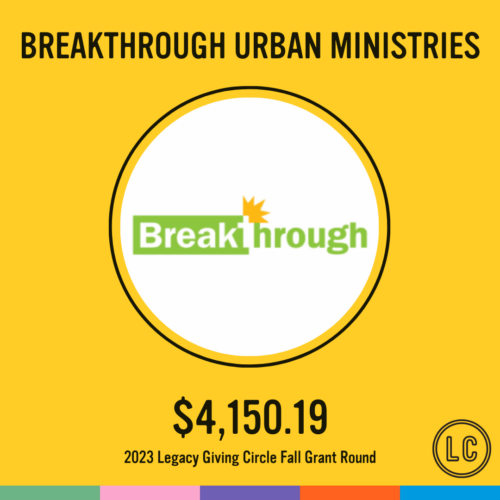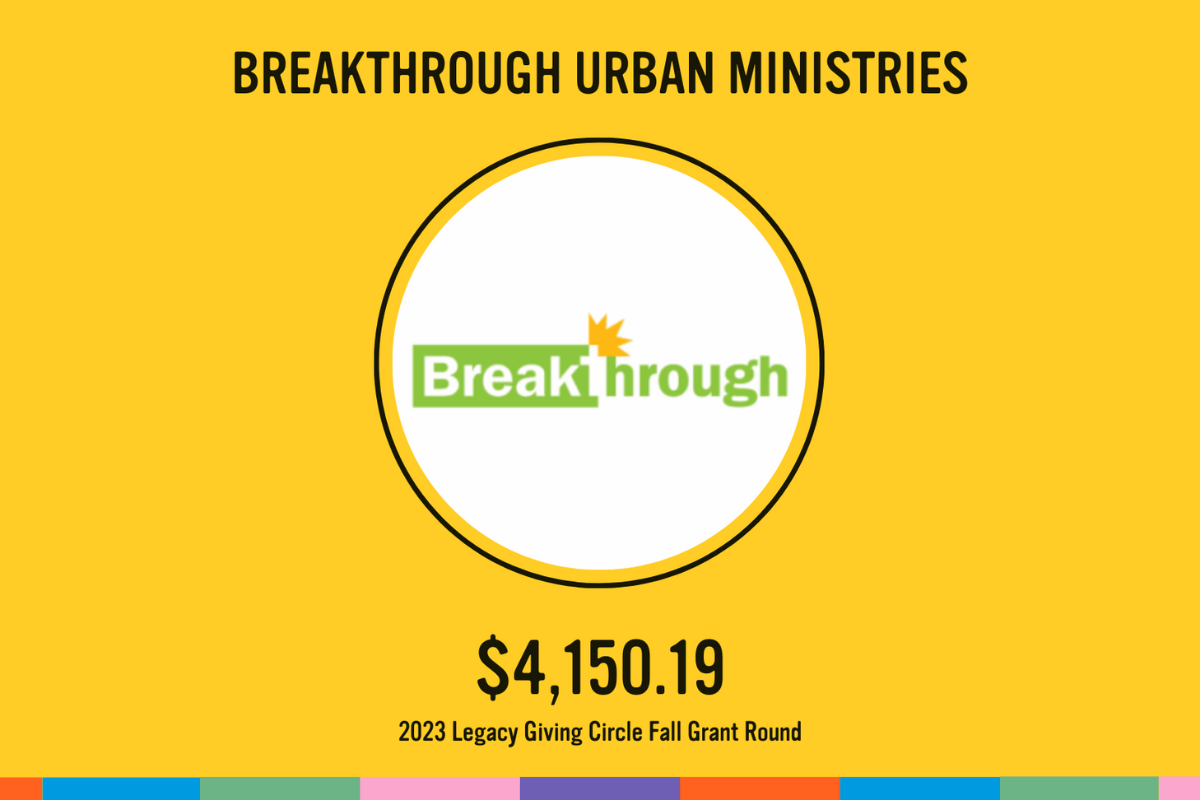
We are excited to announce our 7th and final 2023 Fall Grant Recipient!
Thanks to our generous Legacy Giving Circle donor community, Breakthrough Urban Ministries is receiving a $4,150.19 grant towards providing behavioral health resources.
Initiative Location: Chicago, Illinois
Initiative Cause Areas: Healthcare; Homelessness; Mental Health
UN Sustainable Development Goals: 03 Good Health & Well-Being
Initiative Description: Breakthrough’s Behavioral Health program works alongside individuals to improve well-being, employ self-management skills, and integrate holistic wellness services for all ages. Breakthrough partners with the individuals facing the greatest challenges, including those in extreme poverty and adults experiencing homelessness. The program increases access to health care for a vulnerable population, while improving health literacy, decreasing care fragmentation, and addressing behavioral and social determinants of health. The program operates out of a healing centered, housing first, harm reduction model of care that puts an individual’s choice at the center.
For adults, Behavioral Health services are offered within two transitional housing shelters and Daytime Support Centers. The Men’s Center houses 30 men and the Women’s Center houses 30 women; both shelters implement a program designed to rapidly re-house guests within 120 days. Each guest meets with a Licensed Clinical Social Worker to develop a treatment plan which can include on-site psychotherapy, addiction treatment, 1:1 coaching, and group therapy. The Daytime Support Centers, open from 9 a.m. to 3 p.m. on weekdays, provide basic needs such as food, showers, laundry, and access to technology. Breakthrough employs a Community Health Worker who conducts needs assessments for guests and links them to mental health services, medical care, emergency shelter, and that nurture a sense of belonging. In partnership with the Depression Bipolar Support Alliance (DBSA) and Malcolm X College, Breakthrough utilizes peer support specialists, individuals with the lived experience of recovery from a mental health or substance use disorder, trained to partner with participants moving forward in their wellness journey. These specialists oversee wellness groups and provide one-on-one coaching.
Behavioral Health has most recently expanded its services to youth within Breakthrough’s Nettie Bailey Student Achievement Program (NBSAP) for K-8th grade students and Breakthrough Beyond, the organization’s high school and post-secondary program. Three full-time staff collaborate with youth development specialists, parents, and external resources to provide individual and group therapy; family sessions are also available, as requested. These staff additionally oversee art therapy and social work interns.
Initiative Impact: Breakthrough has the following goals and objectives for Behavioral Health in FY24:
Goal 1: Adults in the Support Centers will be assessed for medical and behavioral health care needs and referred/connected to other services
- 50% of those enrolled in the Support Centers will be assessed by the Community Health Worker
- 40% of those assessed will be connected to other services that include mental health, substance abuse, housing, employment, and financial services
- 75% of those connected will attend on- and/or off-site referral appointments, group therapy, and/or 1:1 coaching
Goal 2: Adults in Transitional Housing will improve their well-being and make progress toward life recovery through behavioral health services and peer support
- 80% of guests of transitional housing will be assessed for medical and behavioral health care needs and referred/connected to other services
- 60% of guests assessed will participate in on-site psychotherapy or 1:1 coaching and/or support groups
- 50% of guests assessed will request/require/receive behavioral health care coordination services
- 60% of guests engaged in behavioral health services will report progress toward improved wellbeing and decreased substance use
- 60% of guests involved in onsite groups, including peer support groups will report progress in life recovery
